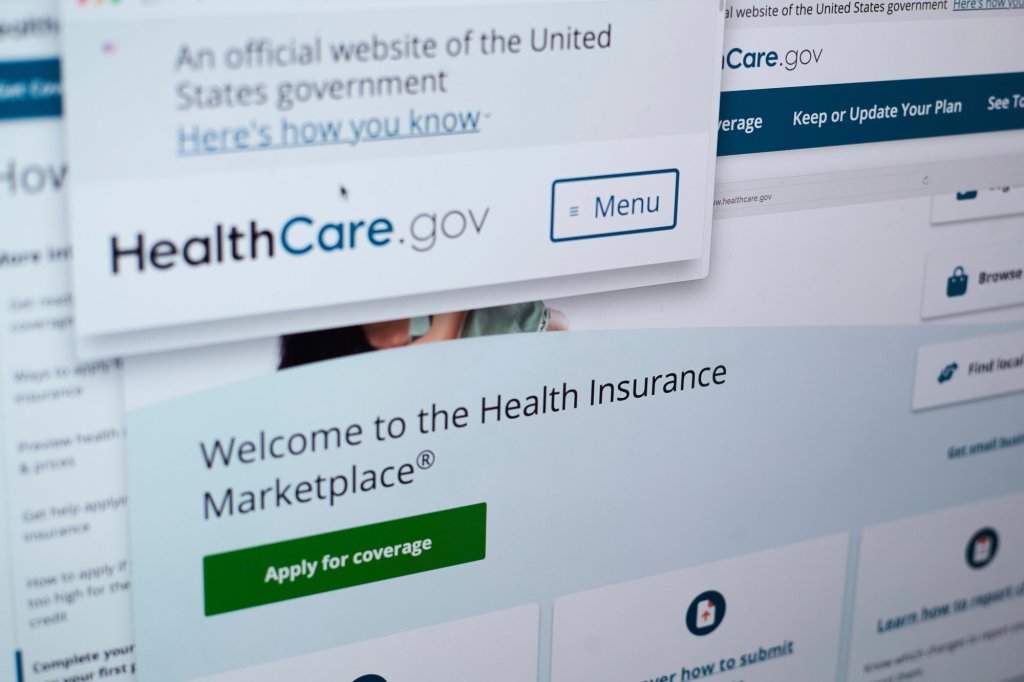By Devon Trolley, executive director, Pennie
Imagine waking up in January and discovering that the cost of your family’s health insurance has doubled overnight. That’s the likely reality facing nearly half a million Pennsylvanians, unless action is taken by Congress this month.
Critical cost-savings are set to expire soon that could deliver a financial shock to the roughly 500,000 Pennsylvanians purchasing coverage through Pennie, Pennsylvania’s health insurance marketplace.
As the executive director of Pennie, I am concerned about the financial strain that individuals and families will immediately feel and the eventual financial strain for doctors and hospitals across Pennsylvania’s health care system. For people who don’t get coverage through an employer, Medicaid or Medicare, Pennie is the only option for guaranteed maximum consumer protections and premium tax credits that lower the cost of health coverage.
The enhanced premium tax credits — the financial help that has made health insurance through Pennie more affordable than ever — are ending under current law. Time is short to change this. If Congress does not act by Sept. 30 to extend these tax credits, Pennsylvanians who buy coverage on their own will face unprecedented cost increases.
Since 2021, the enhanced tax credits have allowed more individuals and families to afford high-quality, Affordable Care Act-protected coverage — plans that protect against emergencies and cover essential health benefits, preexisting conditions and free preventive care. The impact is clear. A record number of Pennsylvanians now have coverage that protects against financial risks of medical emergencies and ensures access to care. Pennie enrollees tell us that they have built their lives, budgets and businesses around access to affordable health coverage.
Every community across Pennsylvania benefits from people having access to doctors and care they need. These are our neighbors, friends, and family — the farmers who grow our food, our barbers and hairstylists, the mechanics who fix our cars, and the child care workers who watch over our children. Many who buy coverage through Pennie are self-employed or own small businesses.
Here is what we heard from just one of the many Pennsylvanians covered through Pennie: “I’ve been battling stage 4 cancer since late 2023. Pennie coverage and the ACA’s enhanced subsidies allow me to stay in the fight and keep up with chemotherapy and radiation therapy. My life 100% depends on the quality health plans I can access through Pennie and the ACA’s enhanced subsidies that I receive.”
When coverage becomes unaffordable, the impacts ripple throughout our local economies and on so many facets of Pennsylvanians’ lives. Without the enhanced premium tax credits, many small-business owners will face hard decisions: raising prices, reducing staff or shuttering entirely. Others may be forced to drop coverage altogether, leaving them just one accident or diagnosis away from financial ruin.
This will affect all of Pennsylvania, not just those who have coverage through Pennie. Fewer insured patients will mean more uncompensated care and more strain on clinics and hospitals, especially in rural and underserved areas where providers are already fighting to keep their doors open.
In talking about costs of health insurance, it’s easy to forget that premiums are not solely monthly payments to insurance companies, but that those premium dollars are what pay doctors, nurses, hospitals and clinics. In some communities, those payments mean the difference between a clinic staying open or shutting its doors.
Open Enrollment for 2026 coverage is just weeks away, starting Nov. 1. That is when Pennsylvanians with coverage through Pennie will see costs that are 82% higher. In many cases, costs will be doubled or more. The expiration of enhanced premium tax credits will disrupt the financial security and health of hundreds of thousands of Pennsylvanians.
Speaking directly to Pennie enrollees and health care providers: If you have coverage through Pennie, be sure to read all the communications from us and your insurance company over the coming months. If you work in the health care system in Pennsylvania, consider planning for some patients losing health coverage starting in January.
Health coverage saves lives. It also saves money by catching illnesses early, preventing costly emergencies and helping Pennsylvanians stay healthy enough to work, raise families and age with dignity. However, if the enhanced premium tax credits are not extended, Pennsylvania could see a full-scale reversal of the recent gains in access and affordability and could experience negative impacts across our health care system.
This is a contributed opinion column. Devon Trolley is executive director of Pennie. The views expressed in this piece are those of its individual author(s), and should not be interpreted as reflecting the views of this publication. Do you have a perspective to share? Learn more about how we handle guest opinion submissions at themorningcall.com/opinions.

